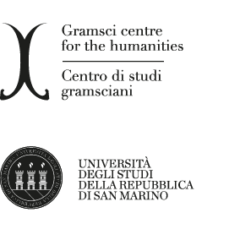To begin a discussion on the digital revolution in the humanities, we have asked some questions to our scientific advisors. Their answers will be published in eight issues. Here, as the eighth and last issue, Andrea Ricciardi and Damiano Garofalo. Continue reading “The digital revolution in the humanities seen at close quarters: Andrea Ricciardi e Damiano Garofalo”
The digital revolution in the humanities seen at close quarters: Giusto Traina e Michele Nani
To begin a discussion on the digital revolution in the humanities, we have asked some questions to our scientific advisors. Their answers will be published in eight issues. Here, as the seventh issue, Giusto Traina and Michele Nani. Continue reading “The digital revolution in the humanities seen at close quarters: Giusto Traina e Michele Nani”
Radio, newspapers and books: the Massimo Bordin’s archives
Scholars of the history of journalism and Italy in the contemporary age have a new source from which to draw for their research. A little more than a year after his death, Massimo Bordin’s archives have been completely restored by Dr. Andrea Maori, a freelance archivist and former collaborator of the Radio Radicale archives. Continue reading “Radio, newspapers and books: the Massimo Bordin’s archives”
The digital revolution in the humanities seen at close quarters: Jeffrey Schnapp e Paolo Varvaro
To begin a discussion on the digital revolution in the humanities, we have asked some questions to our scientific advisors. Their answers will be published in eight issues. Here, as the sixth issue, Jeffrey Schnapp and Paolo Varvaro. Continue reading “The digital revolution in the humanities seen at close quarters: Jeffrey Schnapp e Paolo Varvaro”
Gramsci, a maxim by Rivarol and unread books (Prison notebooks, 23, 4)
This is the transcript of the lecture given by the director of the Gramsci centre for the humanities, Massimo Mastrogregori, to the students of the Scuola Superiore di Studi Storici, San Marino last June 24, on the theme: Gramsci, Rivarol and the unread books (Quaderni del carcere, 23, 4). Below you will find a discussion with the students of the Scuola and a comment by Prof. Fabio Frosini of the University of Urbino, whom we thank very much for intervening later in the discussion. Continue reading “Gramsci, a maxim by Rivarol and unread books (Prison notebooks, 23, 4)”
The digital revolution in the humanities seen at close quarters: Donald Sassoon and Luca Peretti
To begin a discussion on the digital revolution in the humanities, we have asked some questions to our scientific advisors. Their answers will be published in eight issues between now and mid-October. Here, as the fifth issue, Donald Sassoon and Luca Peretti. Continue reading “The digital revolution in the humanities seen at close quarters: Donald Sassoon and Luca Peretti”
Welcome to the website of the Centro Gramsci of San Marino
The Gramsci centre for the humanities/Centro di studi gramsciani is a research centre founded in 2020.
The double header – Gramsci centre for the humanities / Centro di studi gramsciani – is not only a very free presentation of the same content in two languages. It also refers to a dual function. On the one hand, the scientific observation of Gramsci’s work, his legacy, his method; on the other hand, research on some of Gramsci’s themes – organization of cultural work; intellectuals; politics and culture… – in their current implications: in new terms. Continue reading “Welcome to the website of the Centro Gramsci of San Marino”
The digital revolution in the humanities seen at close quarters: Lutz Klinkhammer and Matteo Melchiorre
To begin a discussion on the digital revolution in the humanities, we have asked some questions to our scientific advisors. Their answers will be published in eight issues between now and mid-October. Here, as fourth issue, Lutz Klinkhammer and Matteo Melchiorre. Continue reading “The digital revolution in the humanities seen at close quarters: Lutz Klinkhammer and Matteo Melchiorre”
The digital revolution in the humanities seen at close quarters: Marco Filoni and Erminia Irace
To begin a discussion on the digital revolution in the humanities, we have asked some questions to our scientific advisors. Their answers will be published in eight issues between now and mid-October. Here, as third issue, those of Marco Filoni and Erminia Irace. Continue reading “The digital revolution in the humanities seen at close quarters: Marco Filoni and Erminia Irace”
The potential of Transkribus for textual research, the opinion of Daniele Fusi
This is the third and last part of the interview with philologist Daniele Fusi on the Transkribus platform and the frontiers of electronic text analysis. In the first one, Dr. Fusi told us about his experience as a digital philologist and some programs used in his research field; in the second one, he explained the difference between digital text and digitalized text. Continue reading “The potential of Transkribus for textual research, the opinion of Daniele Fusi”










